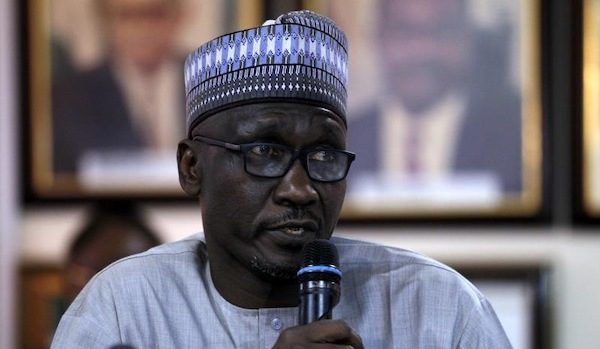Business
NNPC targets use of Artificial Intelligence to end fuel importation by 2023

The Nigeriam National Petroleum Corporation (NNPC) is targeting to end fuel importation into the country by 2023 with the use of technology.
NNPC boss, Mele Kyari shared this dream in Lagos on Monday while speaking as a guest of honour at the ongoing 2019 conference and exhibition of the Society of Petroleum Engineers (SPE) Nigeria Council.
The conference is themed: Artificial Intelligence, Big Data and Mobile Technology, Changing the Future of the Energy Industry.
Mele who agreed that technology had altered the dynamics of operations by providing quicker processes and interventions in the conduct of petroleum operations, said the corporation would embrace technology in achieving this dream.
He added that the nation’s oil industry was beleaguered by other issues that were not necessarily technology driven, such as fiscal regime, adding it had to be addressed in order to accelerate investment across the value chain.
The NNPC chief said: “Nigeria is still a net importer of petroleum products due to the current state of our refineries and the long absence of private investment in the refining sector.
“We require more investment to revamp and expand our domestic refineries and associated infrastructures to support the growth of the downstream sector and guaranty energy security to the nation. We are progressing with the establishment of Condensate refineries to fast-track domestic supply of petroleum products.”
Read also: NUPENG shelves strike as Kyari intervenes
He said: “No doubt, the emergence of Artificial Intelligence (AI) has altered the dynamics of our operations by providing quicker processes and interventions in the conduct of petroleum operations.
“This also is on the back of big data that provides the platform for an effective AI system.
“The combination of AI and big data are complemented further by mobile technology that enables real time access to information and the execution of apparently complicated operation from remote locations.
“Today, single data platforms exist that link large amount of information to create robust decision support across variety of industry operations – to grow reserves, increase production at the lowest possible UTC, compete for market with emerging alternative production sources, to take market position in renewable energy, and address the challenges posed by regional security issues, market volatility, activities of vandals and saboteurs, and oil thieves and pirates.
“Today, despite the opportunities that exist in the industry, investment decisions in oil and gas projects in Nigeria have become increasingly difficult to closeout.
“This I believe is driven by unclear fiscal terms of various production contracts and the delays in the passage of the lingering petroleum legislation.
“The effect is for investors to opt for alternative portfolios when making financing decisions. We, therefore, need to collaborate to ensure the timely resolution of contractual issues and the passage of the necessary petroleum legislation,” he said.
By Babatunde Alao…
Join the conversation
Support Ripples Nigeria, hold up solutions journalism
Balanced, fearless journalism driven by data comes at huge financial costs.
As a media platform, we hold leadership accountable and will not trade the right to press freedom and free speech for a piece of cake.
If you like what we do, and are ready to uphold solutions journalism, kindly donate to the Ripples Nigeria cause.
Your support would help to ensure that citizens and institutions continue to have free access to credible and reliable information for societal development.
























